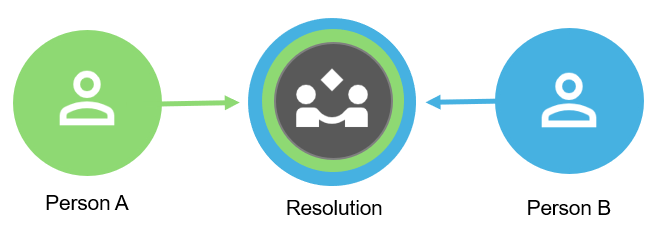3.4 Self-Responsibility
Victim mentality can be significantly reduced, and even eliminated, when an individual voluntarily adopts more self-responsibility, the state or fact of being responsible, answerable, or accountable for things within one’s power, control, or management. With this mindset, individuals take full ownership of their actions, choices, and circumstances, fostering growth and empowerment, concepts which are closely linked to wellness and the pursuit of optimal being.
Elements of Self-Responsibility.
All choices you make are personal
Every choice you make is ultimately your own. External influences may shape your decision-making process, but the responsibility for the final decision rests with you. Even in extreme situations, such as facing immense pressure or coercion, the act of choosing remains yours. Recognizing this empowers you to take ownership of your decisions and the resulting outcomes.
How you think and what you do are both actions
How you think and act are deliberate actions within your control. While fleeting thoughts may arise automatically, you hold the power to process them and decide your response(s). Developing this awareness reinforces your ability to steer behaviours and decisions intentionally.
All actions have consequences.
Every action has consequences—positive, negative, or neutral. Understanding this universal principle helps you act with greater awareness and consider the potential outcomes of your decisions.
You must accept responsibility for all consequences.
Taking ownership means accepting responsibility for the outcomes of your actions, whether they were intended or unintended. Avoiding blame-shifting fosters accountability and integrity.
You may not be aware of all the consequences of your actions.
While you may not always foresee the full range of consequences your actions might have, you remain accountable for their impact. This understanding encourages you to approach decisions thoughtfully, considering possible implications and remaining adaptable when unintended outcomes arise.
Who is Ultimately Responsible?
In any conflict between two or more individuals or groups (assuming there are no victims), three principles remain true:
1. Shared Responsibility:
- Both parties are always responsible, to some degree, for the circumstances leading to the conversation or encounter. While one side may bear greater responsibility, this does not negate the fact that accountability exists on both sides.
2. No Absolute “Right” or “Wrong”:
- Conflicts are rarely black and white. Neither side is ever entirely in the right or entirely in the wrong. Shades of gray typically dominate disagreements, reflecting the complexity of human interactions.
3. Resolution Lies in Compromise:
- Conflict resolution typically resides in the middle ground, necessitating mutual effort and understanding. While one side may need to compromise more, resolution depends on both parties making meaningful strides toward reconciliation.


